Need pigeons removal in your hometown? We service over 500 USA locations! Click here to hire us in your town and check prices – updated for year 2020. When it comes to home remedies that are discussed in books and on DIY websites, there are few that come up as often when it comes to dealing with pest animals as ammonia and mothballs. Down the years there have been so many people who fall for the hearsay of these simple solutions that will solve an awkward problem like a pigeon infestation. There are several reasons why people think that the idea of using these chemicals might actually be effective, but unfortunately, these do not stand up to close scrutiny.  The Strong Scent Of The Chemicals One of the main reasons that people will think that mothballs and ammonia may prove to be an effective repellent is that even to the weak human nose, when they get close to these chemicals the strong scent may make them flinch. The pigeons sense of smell is remarkably good, but although they use this when they are trying to find their way to a particular destination, it isnt used regularly when looking for food. When it comes to being a repellent, the features that will attract a pigeon to a particular location will make the scent just a little bit of an inconvenience, rather than a repellent that they cannot live with. The Toxic Effect Of Mothballs And Ammonia The scent and the effect of these chemicals are both very strong, but for those who think that pigeons will be deterred by the effect of mothballs and ammonia, sadly it isnt the case. These birds will not want to consume any of these chemicals, and even in confined spaces they can just move to another area of the attic where the effect of being near such strong chemicals can be ignored. Alternatives To Ineffective Repellents There are several different ways that can be used to drive pigeons away, and while preventing them from getting in to confined spaces is the best approach, exclusion is one good way of getting rid of the birds. There are several different types of repellent, but if you have pigeons that are constantly perching or landing in a particular area, using pigeon netting and spikes can also work. If you are struggling to deal with a pigeon infestation, then there is also a good range of professionals who will have the knowledge and the experience to deal with such issues quickly and effectively that will be based in your area. Go back to the Bird Removal page.
The Strong Scent Of The Chemicals One of the main reasons that people will think that mothballs and ammonia may prove to be an effective repellent is that even to the weak human nose, when they get close to these chemicals the strong scent may make them flinch. The pigeons sense of smell is remarkably good, but although they use this when they are trying to find their way to a particular destination, it isnt used regularly when looking for food. When it comes to being a repellent, the features that will attract a pigeon to a particular location will make the scent just a little bit of an inconvenience, rather than a repellent that they cannot live with. The Toxic Effect Of Mothballs And Ammonia The scent and the effect of these chemicals are both very strong, but for those who think that pigeons will be deterred by the effect of mothballs and ammonia, sadly it isnt the case. These birds will not want to consume any of these chemicals, and even in confined spaces they can just move to another area of the attic where the effect of being near such strong chemicals can be ignored. Alternatives To Ineffective Repellents There are several different ways that can be used to drive pigeons away, and while preventing them from getting in to confined spaces is the best approach, exclusion is one good way of getting rid of the birds. There are several different types of repellent, but if you have pigeons that are constantly perching or landing in a particular area, using pigeon netting and spikes can also work. If you are struggling to deal with a pigeon infestation, then there is also a good range of professionals who will have the knowledge and the experience to deal with such issues quickly and effectively that will be based in your area. Go back to the Bird Removal page.
What smells do birds hate?
You should use olfactory bird deterrents to keep birds off your property. Furthermore, you can prevent birds from congregating in your backyard by making homemade essential oils if you know what scents they find repulsive. Even though their sense of smell is not very strong, it has been demonstrated that some scents irritate and discomfort birds.
For instance, hiring turf cleaning Summerlin NV services is the most efficient option if you’re in Summerlin. Once the professionals have completed their work, you can apply the essential oils to the turf, surrounding plants, porches, or any other area you want to keep free of bird droppings.
Garlic is probably one of the smells that birds detest the most. This is because it has an ingredient called allicin, which aggravates birds greatly. Fortunately, this smell only bothers birdsit does not harm them. Therefore, all you need to do to get rid of the birds is make a homemade spray by mixing garlic powder with water. Apply it to your property’s surroundings or to areas like gutters and roofs where birds congregate and build their nests.
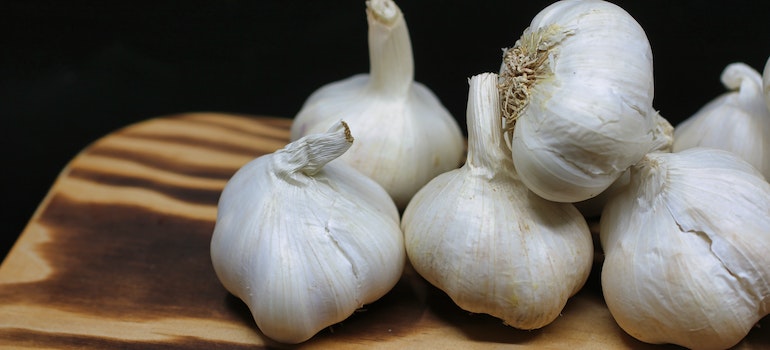
Also, consider spraying it on your fruits in the garden. Birds are usually attracted by the smell of ripping fruits. Nevertheless, a small amount of garlic spray applied to your plants will deter birds and won’t harm them. Just be mindful that you will need to reapply it frequently because the garlic scent fades quickly.
Another smell that birds hate is the smell of peppermint. You can use this scent to deter birds from visiting your area because they find it to be extremely unsettling. The best part is that peppermint oil doesn’t hurt the environment, birds, or your plants. Therefore, apply peppermint oil to the areas where birds nest by mixing it with water. Since they frequently congregate on roofs and build nests there, it would be a good idea to pressure wash the roof in order to remove any bird droppings before applying the peppermint oil. This will guarantee that there are no birds destroying your plants or leaving behind bird droppings in the vicinity of your home.
One very good way to keep the birds away is with vinegar. Its only drawback is that it might damage your plants. For this reason, it works well for your porch and the surrounding area of your home, but not for your garden. The best way to apply it in your garden is to dilute your peppermint or garlic oil with a few drops of vinegar, then mist the surrounding plants. If not, fill the spray bottle with vinegar and use it to mist your porch, garage, and other places that aren’t near your fruits and vegetables. This may be just as successful of a solution as hiring experts for pigeon removal in Summerlin, Nevada. The birds will be taken out of your property, but in a way that protects them and doesn’t hurt them.
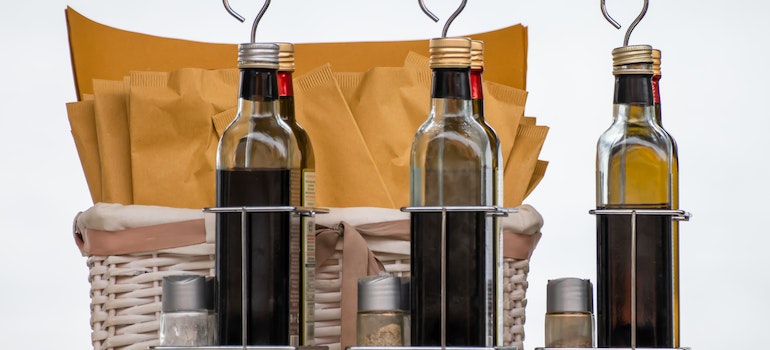
Consider how birds would respond to chili, as some people find it irritating. Birds avoid chili because of the capsicum annuum, which gives it its spicy flavor. There are several varieties of chili, and you can use them all to ward off birds. To keep birds away from an area, simply use some water and add some chili powder, chili salt, or chili pepper to it. Then, sprinkle it around. You can even use vinegar in place of water, but use caution as vinegar can damage your plants, as was already mentioned. However, you can be certain that you won’t harm your plants or your property if you combine it with water.
Unbelievably, another scent that will deter birds is lemon. Because lemon has such a strong scent, birds would quickly take off from the area. The outcome will be the same whether you use freshly squeezed lemon juice or create a spray with water in it. And that is, you wouldn’t have to worry about birds damaging your property ever again. You can be confident that lemons are among the best natural ways to deter birds from visiting your property because they are not poisonous or damaging to them.
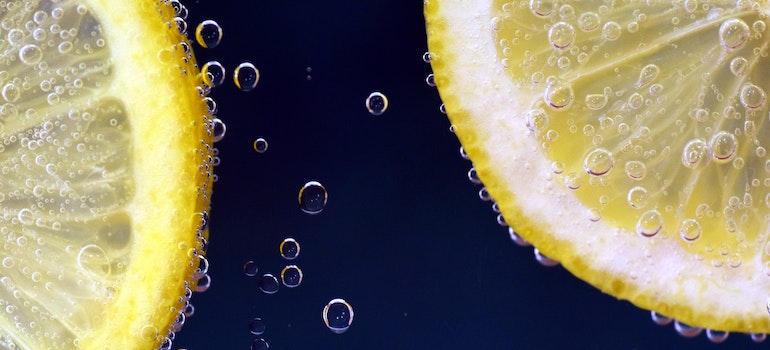
Birds are among the many animals that detest the smell of cayenne pepper. This is a result of the cayenne pepper’s odor irritating the birds’ olfactory glands. Therefore, if pigeons or any other birds are bothering you in your area, chop up some cayenne pepper, mix it with some water, and spray your property. Just use caution as this spray has the potential to irritate your eyes. This will deter birds from landing in your garden, on your roof, and on your solar panels. Additionally, think about having your residential solar panels cleaned before using this technique. After birds have cleaned your solar panels of their cayenne pepper odor, bird deterrents will make sure they never again tamper with your panels.

There are a few scents that birds dislike, in case you were wondering. However, one thing is for sure: birds are repulsed by the smell of mothballs or ammonia. The easiest method is to just place a few mothballs in your garage, porch corners, and certain garden spots. Without a doubt, this scent will deter birds. But keep in mind that for this method to work really well, you will need to periodically replace the mothballs because their odor fades quickly.
Citronella is probably the scent that birds detest the most. This is a natural scent found in lemongrass. Even though a lot of people use this scent to freshen up their homes, birds simply don’t like it. Because of its strong scent, you can be sure that birds won’t be drawn in by other garden scents. Citronella will deter them from visiting. You can use a fresh plant or oil. The scent of lemongrass will deter birds from visiting your garden if you choose to use a fresh plant. Alternatively, you can purchase citronella oil and apply it to the areas you wish to keep free of birds. The benefit is that it will deter not just birds but also flying insects and mosquitoes.
Without a doubt, the majority of people enjoy cinnamon. We all have cinnamon powder or sticks in our kitchens. But for the birds is a different story. Birds dislike the smell of cinnamon. Therefore, all you would need to do is scatter a few cinnamon sticks around your home to deter birds from visiting particular spots on your property. Moreover, you can combine cinnamon powder and water. You can use it to spray the nooks and crannies of your garage, porch, and other exterior spaces. An economical and efficient method of keeping birds off your property is to use cinnamon.
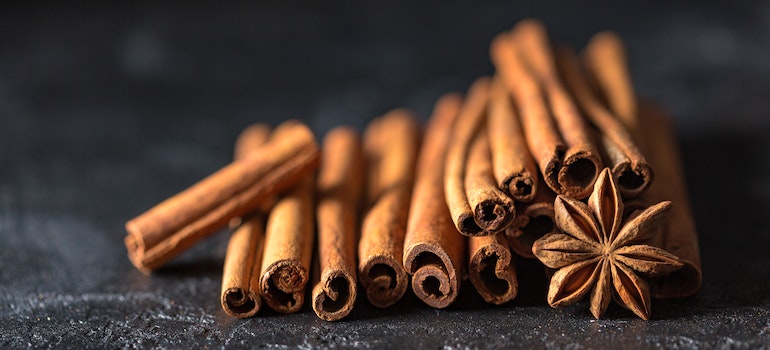
Lastly, the smell that birds absolutely repel is the smell of the bird gel. This product is mostly used by professionals and you can buy it in the stores if you dont want to make your own essential oil. The smell of this product will depend on the type of bird gel but some of them can have a mixture of smells mentioned above.
The benefit of applying bird gel is that it acts as a physical barrier in addition to irritating the birds’ sense of smell. Because the gel sticks tenaciously to birds’ feet, it irritates them and keeps them from roosting in your backyard. Bird gel is the best way to keep birds off your property, just as hiring solar panel cleaning Summerlin NV services is the best way to keep your solar panels efficient.
Those people who have experienced a pest animal problem before and have visited a local hardware store or garden center will know that there are a lot of repellent products that are designed to deal with different species. Getting rid of pigeons and other flying pests is one big area of the repellent business, but the reality is that in the majority of these products are at best ineffective, and at worst are a downright waste of money.  Chemical Repellents There are a range of different types of chemicals that are claimed to have a repellent effect on pigeons, and while in some cases they will have an offensive smell or texture, they will usually be little more than a slight inconvenience for the pigeons. Indeed, because many of these chemicals are toxic, the risks of using them outweigh even the best case scenario of benefits. Audio Repellents Another type of repellent is the devices that produce a high pitched noise that is said to be insufferable to all manner of animals, and they will immediately want to leave the area. Many people learn through bitter and costly experience that that promises made on the packaging do not equate to the results that they see when they actually use these. Gel Repellents These products are designed to be spread on surfaces such as windowsills and roof lines, with the viscous substance making it unpleasant for the pigeons to land on these areas. Covering your home in a sticky substance is not exactly a pleasant idea, and while it may work in some situations, often the end result means that it wasnt really worth it, and in the attic it simply isnt appropriate. Why Repellents Are Ineffective Against Pigeons The majority of situations in which pigeons have found their way into the attic will mean that you only find out about it after they have settled into their new home. The reality is that steps such as exclusion or trapping and removal will be required, as the repellents will rarely be enough of a factor to cause them to move on to a new nesting location. Go back to the Bird Removal page.
Chemical Repellents There are a range of different types of chemicals that are claimed to have a repellent effect on pigeons, and while in some cases they will have an offensive smell or texture, they will usually be little more than a slight inconvenience for the pigeons. Indeed, because many of these chemicals are toxic, the risks of using them outweigh even the best case scenario of benefits. Audio Repellents Another type of repellent is the devices that produce a high pitched noise that is said to be insufferable to all manner of animals, and they will immediately want to leave the area. Many people learn through bitter and costly experience that that promises made on the packaging do not equate to the results that they see when they actually use these. Gel Repellents These products are designed to be spread on surfaces such as windowsills and roof lines, with the viscous substance making it unpleasant for the pigeons to land on these areas. Covering your home in a sticky substance is not exactly a pleasant idea, and while it may work in some situations, often the end result means that it wasnt really worth it, and in the attic it simply isnt appropriate. Why Repellents Are Ineffective Against Pigeons The majority of situations in which pigeons have found their way into the attic will mean that you only find out about it after they have settled into their new home. The reality is that steps such as exclusion or trapping and removal will be required, as the repellents will rarely be enough of a factor to cause them to move on to a new nesting location. Go back to the Bird Removal page.
Need pigeons removal in your hometown? We service over 500 USA locations! Click here to hire us in your town and check prices – updated for year 2020. When it comes to home remedies that are discussed in books and on DIY websites, there are few that come up as often when it comes to dealing with pest animals as ammonia and mothballs. Down the years there have been so many people who fall for the hearsay of these simple solutions that will solve an awkward problem like a pigeon infestation. There are several reasons why people think that the idea of using these chemicals might actually be effective, but unfortunately, these do not stand up to close scrutiny.  The Strong Scent Of The Chemicals One of the main reasons that people will think that mothballs and ammonia may prove to be an effective repellent is that even to the weak human nose, when they get close to these chemicals the strong scent may make them flinch. The pigeons sense of smell is remarkably good, but although they use this when they are trying to find their way to a particular destination, it isnt used regularly when looking for food. When it comes to being a repellent, the features that will attract a pigeon to a particular location will make the scent just a little bit of an inconvenience, rather than a repellent that they cannot live with. The Toxic Effect Of Mothballs And Ammonia The scent and the effect of these chemicals are both very strong, but for those who think that pigeons will be deterred by the effect of mothballs and ammonia, sadly it isnt the case. These birds will not want to consume any of these chemicals, and even in confined spaces they can just move to another area of the attic where the effect of being near such strong chemicals can be ignored. Alternatives To Ineffective Repellents There are several different ways that can be used to drive pigeons away, and while preventing them from getting in to confined spaces is the best approach, exclusion is one good way of getting rid of the birds. There are several different types of repellent, but if you have pigeons that are constantly perching or landing in a particular area, using pigeon netting and spikes can also work. If you are struggling to deal with a pigeon infestation, then there is also a good range of professionals who will have the knowledge and the experience to deal with such issues quickly and effectively that will be based in your area. Go back to the Bird Removal page.
The Strong Scent Of The Chemicals One of the main reasons that people will think that mothballs and ammonia may prove to be an effective repellent is that even to the weak human nose, when they get close to these chemicals the strong scent may make them flinch. The pigeons sense of smell is remarkably good, but although they use this when they are trying to find their way to a particular destination, it isnt used regularly when looking for food. When it comes to being a repellent, the features that will attract a pigeon to a particular location will make the scent just a little bit of an inconvenience, rather than a repellent that they cannot live with. The Toxic Effect Of Mothballs And Ammonia The scent and the effect of these chemicals are both very strong, but for those who think that pigeons will be deterred by the effect of mothballs and ammonia, sadly it isnt the case. These birds will not want to consume any of these chemicals, and even in confined spaces they can just move to another area of the attic where the effect of being near such strong chemicals can be ignored. Alternatives To Ineffective Repellents There are several different ways that can be used to drive pigeons away, and while preventing them from getting in to confined spaces is the best approach, exclusion is one good way of getting rid of the birds. There are several different types of repellent, but if you have pigeons that are constantly perching or landing in a particular area, using pigeon netting and spikes can also work. If you are struggling to deal with a pigeon infestation, then there is also a good range of professionals who will have the knowledge and the experience to deal with such issues quickly and effectively that will be based in your area. Go back to the Bird Removal page.
Reasons to keep birds away from your property
Despite being stunning animals, you should be aware of the damage that birds can do to your property. First of all, they can be a health hazard. Numerous birds can carry illnesses like avian flu or salmonella, which can be fatal to humans. Also, they can cause damage to your property. They could harm the plants in your garden while they are looking for food. Additionally, they build their nests in gutters and drains, which can clog them and cause your home to flood.
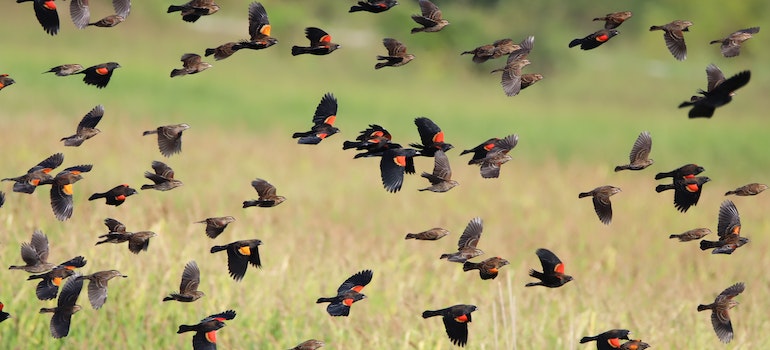
Furthermore, birds can, surprisingly, have an impact on how efficient your solar panels are. Your solar panels may not receive enough sunlight for optimal operation due to the pigeon droppings. Thus, keeping pigeons under your solar panels is essential to preventing damage to your property and guaranteeing that your solar panels are operating as intended. Finally, birds can introduce pests to your property that can seriously harm you and your family as well as your fruits and vegetables.
FAQ
Is ammonia a good bird repellent?
Is there a chemical to keep birds away?
What is the best thing to keep birds away?